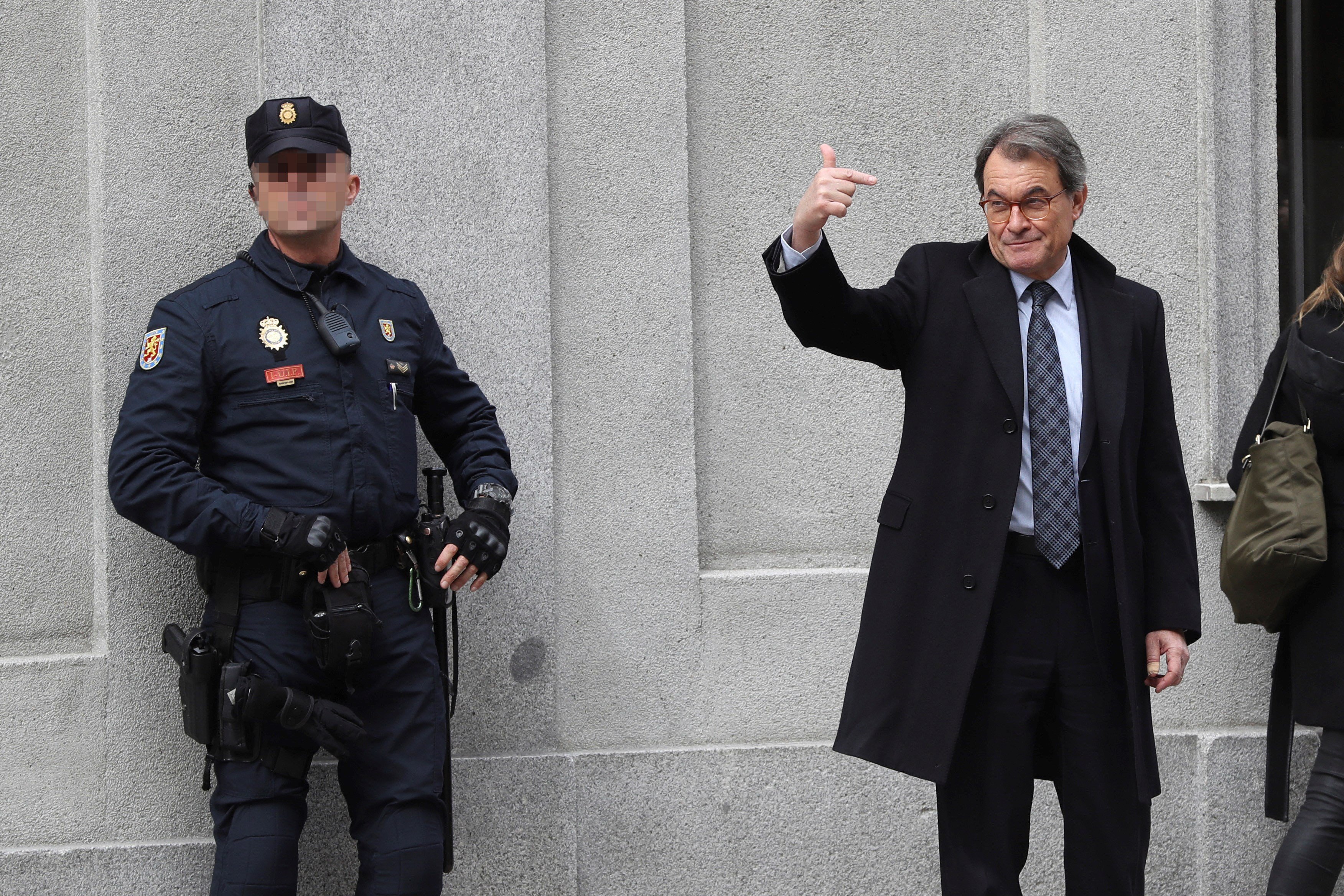Former Catalan president Artur Mas has said, during 3 hours of testimony today before Spain's Supreme Court, that he was in favour of calling elections after the independence referendum, and not the unilateral declaration of independence eventually made on 27th October.
According to legal sources, Mas explained that, on 26th October, Carles Puigdemont was on the point of signing the decree for an election, before finally opting for a declaration of independence "with no effects". The former president, who was with Puigdemont that day, hasn't explained the reason for his change of heart. He says he doesn't know what the reason is.
Mas responded to all questions, including the 50 from right-wing party VOX, which has brought a private acusación popular prosecution in the referendum case. The former president explained his role on key dates, like the 10th October when Puigdemont declared independence only to suspend it again within seconds.
He also said that, in all the meetings he attended, it was suggested that if they didn't agree, they exposed themselves to potential criminal charges including disobedience.
He also gave "veracity", according to legal sources, to the contents of Josep Maria Jové's diary, confirming all the meetings listed in it which he attended.
Three-way commission
During his whole testimony, Mas supported dialogue and negotiation and explained that he was in touch with Spanish prime minister Mariano Rajoy and Alfredo Pérez Rubalcaba, a long-serving, senior PSOE politician, through three political emissaries, to negotiate a solution to the conflict. The commission was looking to agree conditions to hold a referendum.
This committee's meetings took place over a year and a half, starting after the unofficial 2014 "consultation" on independence. Invited were one representative each of PP (Rajoy's party), PSOE (the main Spanish opposition) and CiU (Mas's party).
Symbolic declaration
The former president explained that he told the judge that "the declaration of independence on 27th October was of purely symbolic value". "The referendum was real, the declaration of independence had a more parliamentary and symbolic character, that's how I explained it," he specified.
"I defend the idea of the sovereignty of Catalonia, of the Catalan people's right to decide, even the independence of Catalonia, understood as a future Catalan state, within the European framework", he said he told the judge. "This independence process was born from the heart of the Catalan people, which must be taken into account, likewise that the Catalan institutions have, at all times, tried to accompany this popular process towards sovereignty with a wish for understanding and negotiation with the Spanish state which was not reciprocated."
"I explained that there was no strategic committee" in charge of the independence process, said Mas. Judge Pablo Llarena is basing his investigation on a document entitled Enfocats, found at Josep Maria Jové's house, which defines the whole "road map" to independence. "We were called to a series of meeting, often informal, of invariable composition, where we spoke about politics", he said outside the court, adding that "if we politicians cannot speak about politics, what do we have to speak about?"
"We're people chosen by the people, through elections. We have political and electoral mandates which we have to try to fulfil to the best of our abilities," he added.
Mas showed himself happy to remain free, but "very sad" for the continued imprisonment of four other pro-independence leaders and "sad too because there are people out of the country and who cannot return for the risk of going to prison". "This sadness is what means I cannot celebrate today's events more freely and, above all, with more emphasis."

